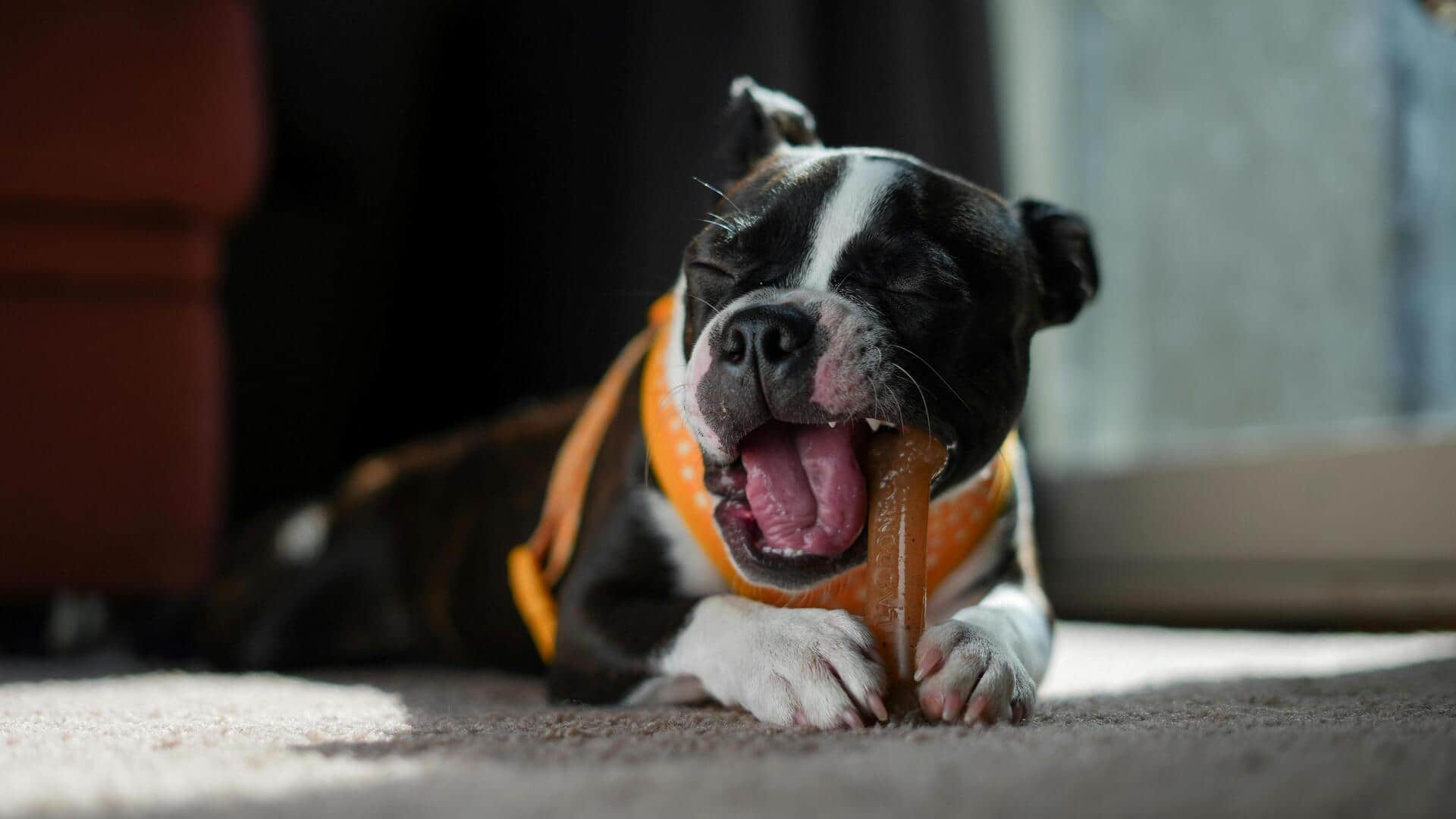
What's werewolf syndrome, rare condition linked to Chinese dog chews
What's the story
The United Kingdom's Food Standards Agency (FSA) has warned dog owners about some chew bones that may lead to "werewolf syndrome" in pets. The potentially dangerous chews, made in China, have been associated with shocking symptoms like panic attacks, aggression, spasms, epileptic fits, and even death. The alert was raised after a dog died in the Netherlands after eating products of the Barkoo brand.
Product details
Affected products and potential distribution
The FSA has flagged a number of products from the Barkoo brand as potentially dangerous. These are Barkoo Kaustange Natur 29cm, Barkoo Kauknochen Geknotet Natur 11cm, Barkoo Kauknochen Geknotet 24cm, and Barkoo Kauknochen Geknotet Mit Spirulina 12cm. Chrisco products such as Tyggeruller Med Kylling and Tyggeruller Med Kylling & Kyllinglever also feature on the list.
Health advisory
FSA's advice to dog owners and veterinarians
The FSA recommends dog owners, who have already administered these chews to their pets, to stop immediately. If a pet exhibits symptoms after consuming these chews, owners should seek veterinary advice. Veterinarians are also advised to be on the lookout for symptoms such as howling, crying, aggression, and seizures in dogs. The agency is working with European countries to gain a better understanding of this issue.
Investigation update
FSA's ongoing investigation and assurance to public
Tina Potter from the FSA said that although there is no confirmed distribution of these products in the UK, some consumers may have purchased them online from international sellers. "No unsafe dog chews have been identified but, based on international investigations so far, we are advising dog owners to avoid feeding the affected chews to dogs as a precaution. There is no evidence to suggest these products present any risk to human health," she said.